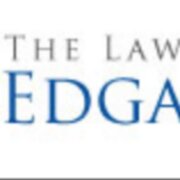Best Toxic Mold Lawyers in Redlands
Share your needs with us, get contacted by law firms.
Free. Takes 2 min.
List of the best lawyers in Redlands, United States
About Toxic Mold Law in Redlands, United States
Toxic mold is a serious concern for residents and property owners in Redlands, United States. Mold can grow in homes, apartments, workplaces, or any building where moisture is present. Some molds, especially black mold (Stachybotrys chartarum), can produce toxins that may lead to health issues such as allergies, respiratory problems, and more severe medical conditions. The legal field surrounding toxic mold addresses responsibilities, liability, and compensation for those affected by improper mold management.
Why You May Need a Lawyer
Toxic mold cases can be complex, involving property law, personal injury, landlord-tenant regulations, and insurance disputes. Here are some common scenarios where legal help is often needed:
- Tenants experiencing health issues or property damage due to mold in rented properties.
- Homeowners discovering mold after purchasing a home, possibly due to nondisclosure by the seller.
- Business owners whose commercial spaces are affected, impacting business operations.
- Disagreements with landlords or property managers about responsibility for mold remediation.
- Filing or appealing insurance claims denied for mold-related damages.
A lawyer experienced in toxic mold law can help you understand your legal rights, gather evidence, negotiate with responsible parties, and represent you in court if needed.
Local Laws Overview
Redlands falls within the jurisdiction of California state law, which includes several statutes and guidelines relevant to toxic mold:
- The California Health and Safety Code requires landlords to maintain rental properties in habitable condition, which includes addressing mold issues.
- The California Toxic Mold Protection Act provides guidelines for the detection, inspection, and cleanup of mold. Landlords must inform tenants about known mold before they move in.
- Real estate disclosure laws require sellers to inform buyers of any known mold problems during a property sale.
- Local building codes may include requirements for moisture control and mold prevention in new and existing constructions.
Violations of these laws could lead to legal liability for property owners, contractors, or sellers. Legal outcomes often depend on documentation, proof of health impacts, and timely reporting.
Frequently Asked Questions
What are the health risks associated with toxic mold exposure?
Toxic mold can cause allergic reactions, respiratory problems, skin irritation, headaches, fatigue, and, in severe cases, long-term neurological or pulmonary issues.
Who is responsible for removing mold in a rental property?
Landlords are generally responsible for ensuring that rental properties are safe and habitable, which includes addressing mold problems not caused by tenant negligence.
Do I need to disclose mold problems when selling my home in Redlands?
Yes, under California law, sellers must disclose any known material defects, including existing or past mold issues, to potential buyers during the sale process.
Can I sue for health problems caused by mold exposure?
You may be able to file a lawsuit if you can prove that the mold exposure was due to someone else's negligence, such as a landlord or previous owner who failed to remediate or disclose the problem.
How do I prove that mold caused my health issues?
Medical records, expert testimony, mold inspection results, and evidence of symptoms appearing after exposure can all help substantiate your case.
What should I do if my landlord refuses to address mold problems?
Document your communications, take photos, consult a local health department, and consider seeking legal counsel if your landlord fails to act on written mold complaints.
Is insurance likely to cover mold damages?
Many standard policies exclude mold unless it resulted from a covered peril, such as water damage from a burst pipe. Carefully review your policy and consult an attorney or insurance professional.
Are there local agencies that inspect for mold?
While most inspections are done by private certified mold inspectors, the local health department may offer guidance or referrals for serious health-related mold concerns.
Can a tenant withhold rent because of mold?
Under certain conditions, tenants might be able to withhold rent or pay for repairs and deduct the cost if the landlord fails to fix habitability issues. Always follow California's legal process before taking such action.
How long do I have to file a toxic mold lawsuit?
In California, the statute of limitations depends on case details but is generally two years for personal injury and four years for property damage. Consult an attorney promptly to avoid missing deadlines.
Additional Resources
- San Bernardino County Department of Public Health: Offers guidance and information on environmental health and mold concerns.
- California Department of Public Health: Publishes mold fact sheets and remediation guidelines.
- U.S. Environmental Protection Agency: Provides detailed advice on mold cleanup, prevention, and health effects.
- California Courts Self-Help Guide: Offers straightforward explanations for tenants and property owners managing mold disputes.
- Certified Indoor Environmental Consultants: For mold inspection and assessment services.
Next Steps
If you believe you are facing a toxic mold issue in Redlands, start by documenting the mold with photos, keeping a record of related symptoms or costs, and notifying the responsible party in writing. Seek professional mold inspection if needed. If the problem is not resolved or poses a significant risk, consult an attorney with experience in toxic mold cases. They can evaluate your case, navigate local and state laws, communicate with insurance companies or opposing parties, and, if necessary, represent you in court to pursue the compensation or remediation you deserve.
Lawzana helps you find the best lawyers and law firms in Redlands through a curated and pre-screened list of qualified legal professionals. Our platform offers rankings and detailed profiles of attorneys and law firms, allowing you to compare based on practice areas, including Toxic Mold, experience, and client feedback.
Each profile includes a description of the firm's areas of practice, client reviews, team members and partners, year of establishment, spoken languages, office locations, contact information, social media presence, and any published articles or resources. Most firms on our platform speak English and are experienced in both local and international legal matters.
Get a quote from top-rated law firms in Redlands, United States — quickly, securely, and without unnecessary hassle.
Disclaimer:
The information provided on this page is for general informational purposes only and does not constitute legal advice. While we strive to ensure the accuracy and relevance of the content, legal information may change over time, and interpretations of the law can vary. You should always consult with a qualified legal professional for advice specific to your situation.
We disclaim all liability for actions taken or not taken based on the content of this page. If you believe any information is incorrect or outdated, please contact us, and we will review and update it where appropriate.









